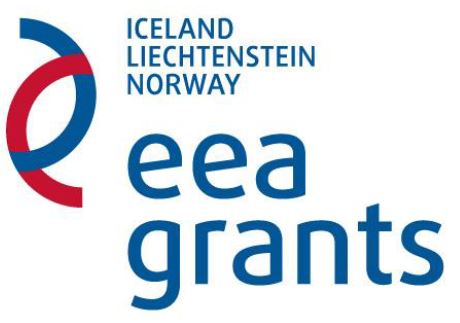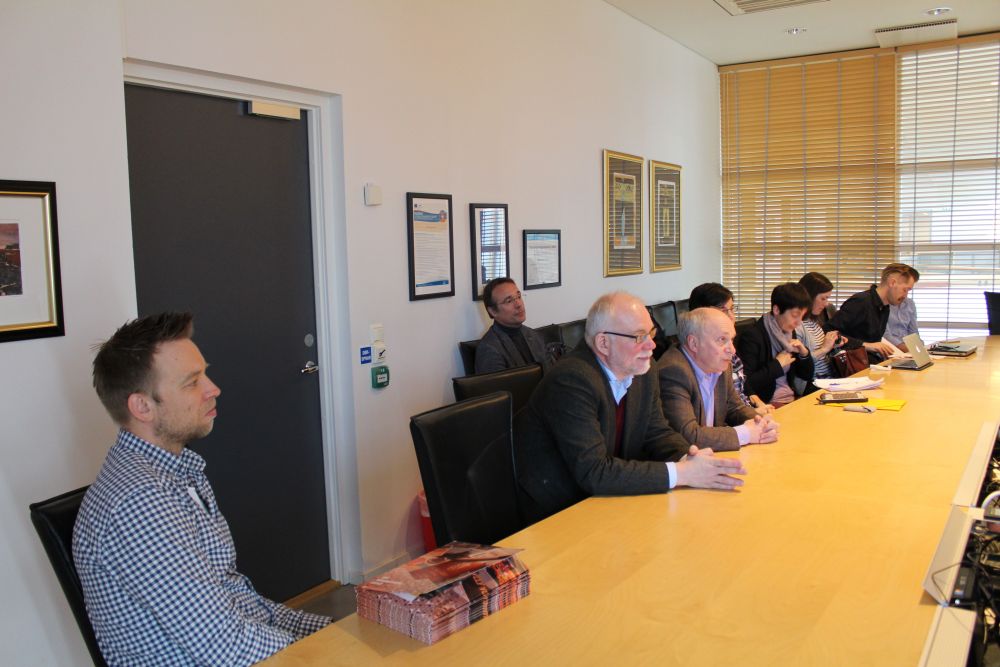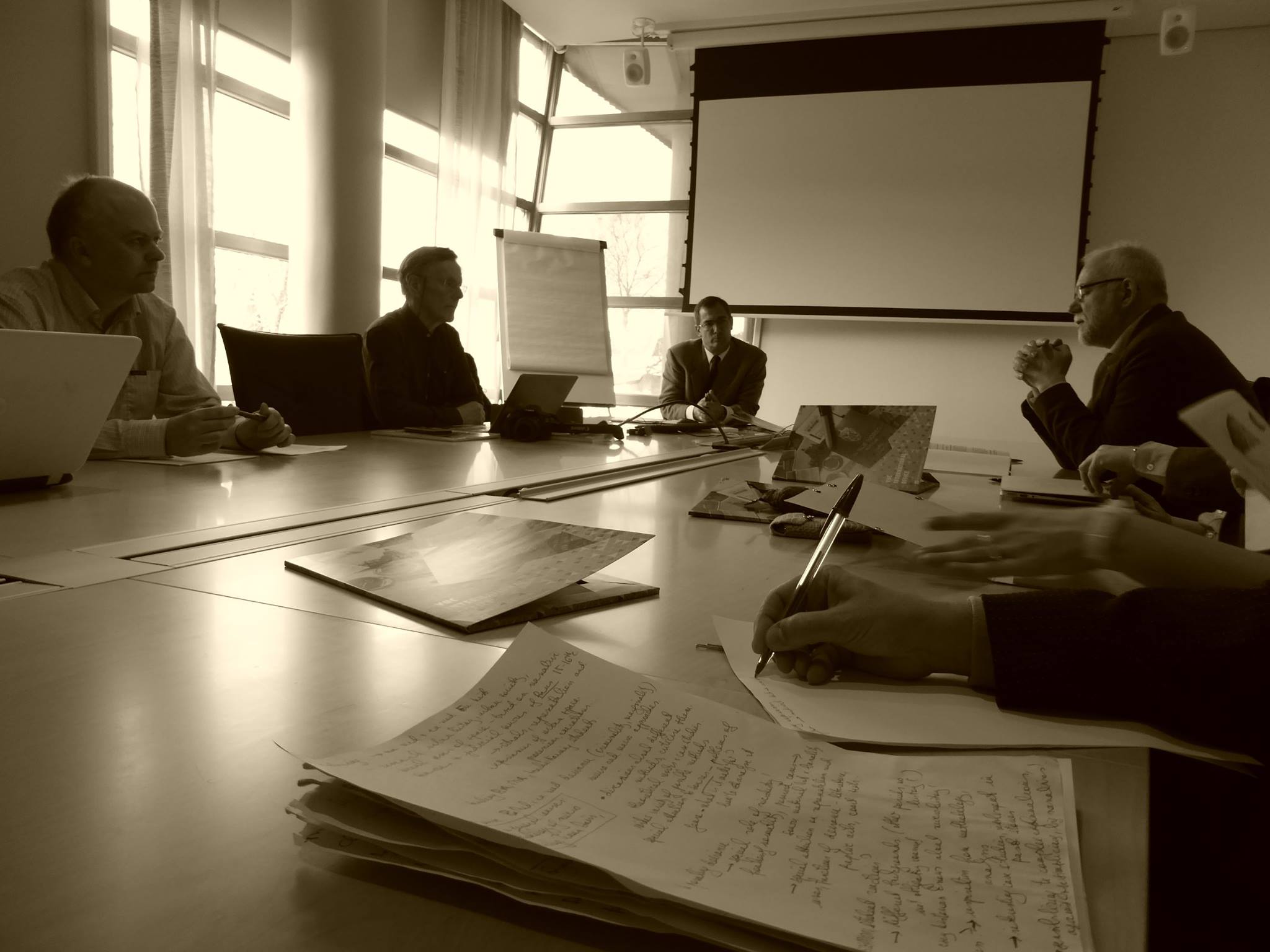Past Projects in Microhistory
Working out the curriculum of a joint MA programme ’Microhistory’
(2014-2016)
Financed by the Tempus Public Foundation (EGT/156/M4-0003)

Project summary
The project unites colleagues from Hungary, Norway and Iceland to work together towards the elaboration of a joint international History MA programme called ’Microhistory’. Based on the experiences of a former cooperation in the field, participants will elaborate relevant educational material and also teach such experimental courses. The novelty of the project can be proved by the fact that microhistory is not yet present in the university curricula but on the level of the courses. The project partners aim to make the decisive step towards the teaching of the approach and the methods of microhistory in the organised form of independent History MA programmes. On the long term, this fosters a better understanding among different peoples, since microhistory does not poise different nations against each other, but rather stresses the common experience of ordinary folk in times past. The project envisages a preliminary phase of gathering data, followed by one workshop, then an academic year in which experimentary courses are held in the partner institutions, followed by two more workshops. As a result full documentation of an MA programme ’Microhistory’ will be offered to universities all over the world, so that they can introduce this into their History curriculum. Every partner has a serious experience in the field. Among the donor partners, Reykjavík Academy is affiliated with the very first institution in the world that specializes in the study of microhistory (Center for Microhistorical Research, see its webpage microhistory.org); University of Iceland is innovative in the field of humanities, open to the most up-to-date currents of thought in social sciences. At Volda University College, important researches are done on local history understood as microhistory. As for the project promoter Hungarian partner, Microhistory has been present on the curriculum of Eötvös University since 1995, and also courses on microhistory in English have been offered.
Partners
Eötvös University (Budapest)
University of Iceland (Reykjavík)
Volda Unversity College (Norway)
Reykjavík Academy (Iceland)
Workshops and conferences
Workshop in Budapest (September 2015)
Workshop in Volda (April 2016)
Conference in Reykjavík (June 2016)
Workgroup MICRO
Participants of the first event of the project Working out the curriculum of a joint MA programme ’Microhistory’, financed by Tempus Public Foundation (partners: Eötvös University, Budapest, the University of Iceland (Reykajvík), Volda Unversity College (Norway) and the Reykjavík Academy (Iceland)), the workshop that took place in Budapest between 25 and 27 September 2015, suggested the establishment of a network that can serve as a basis for a future cooperation aimed at establising an MA programme ’Microhistory’. We shall call this workgroup MICRO and other members of the Microhistory Network are also cordially invited to join in this work. Members. — September 2017: As the University of Iceland, that had been in the centre of the efforts to establish and accredit an English-language MA in Microhistory, decided recently that these attempts are not realistic, the activities of the Workgroup MICRO are suspended – in the hope that someone will soon raise this banner again.
Suggestions for an English-language MA in Microhistory
Sigurdur Gylfi Magnússon’s suggestion (29 September 2015)
István Szijártó’s suggestion (24 October 2015)
Tom Cohen’s comments
Dagmar Freist’s comments
A statement on Andrey Isérov on behalf of NRU-HSU (Moscow)
Final suggestion made by the participants of the Volda workshop, April 2016
Pilot courses
Microhistory – Agency and Cultural Techniques in the 19th-Century Hungarian Literature. MA course in Eötvös University, Budapest in the spring semester of the academic year 2015-2016 (taught by Gábor Vaderna)
Local-, family- and micro history (Arnfinn Kjelland)
Microhistory (István Szijártó)
Microhistory of Italy from the Renaissance to the 18th century (István Szijártó)
Medieval and early modern deviance: macro and micro approaches (Veronika Novák)
Of Unpublished Books: Post-medieval manuscript culture and its role in literary history (David Ólafsson)
Business history and microhistory (Károly Halmos)
The Lost Children of Paris and Other Tales from European History (Mónika Mátay)
Archive of older but relevant course curricula
An Individual Life – Rumors, Scandals, Trials and Memory – A Microhistorical Approach (Sigurður Gylfi Magnússon)
2013/14. Microhistory (István Szijártó)
2009/10. Microhistory (Mónika Mátay – István Szijártó)
Various suggestions for an English-language MA in Microhistory and institutional declarations
The Volda Workshop on 26-27 April, 2016. Summary
In the partnership of Loránd Eötvös University (Budapest), the University of Iceland (Reykajvík), Volda Unversity College (Norway) and the Reykjavík Academy (Iceland), the second event of the project Working out the curriculum of a joint MA programme ’Microhistory’, financed by Tempus Public Foundation, took place in Norway between 26 and 27 April 2016. The 25 April was the arrival day, sessions were held on 26 and 27 April at Volda University College, and participants’ departure took place on 28 April. The programme organized by our Norwegian colleagues allowed for excursions and common meals that allowed for us to continue our discussions in a more relaxed manner. The first session was opened by our host, the Rector of Volda University College.
In the first round of brief introduction (also necessary because of the new participants), Statements were made on the particpant’s willingness (or the lack of it) in taking part in the actual implementation of an international English-language MA in Microhistory. This could be full institutional support in the participation; a possible participation; or an individual participation – if there is willingness from the part of a participating institution to accept a foreign teacher as member of its staff. It became clear that it was the University of Iceland and the National Research University, Higher School of Economics, Moscow which was willing to actually embark on an international cooperation aiming at establishing an international English-language MA in Microhistory. It is to be added that although the colleagues from Carl Ossietzky University, Oldenburg, Germany was not present, she could assure us of the institutional support provided by her university. Beyond this inner circle of three institutions, the rest of the participants could either envisage private participation in the planned international MA in Microhistory or hope for an institutionalized participation realized, however either only later or only on a more modest level.
As a basis of the second round of discussions at Volda, the series of pilot courses were held in the participating institutions during the project (from the spring semester of 2015 through the autumn semester of 2015 to the spring semester of 2016): six of these were held at Eötvös University, Budapest, one at Volda University College, Norway and one at the University of Iceland, Reykjavík. The teachers of these courses were asked to share course curricula with other members of the project beforehand. This was done through our internet site. Also, here three more relevant, though older courses’ curricula were made public, one held in the USA by an Icelandic participant of the project and two more courses’ curricula, held at Eötvös University, Budapest. At the second session of the Volda workshop, each participant was asked to speak in 10-20 minutes about his or her personal experiences in teaching microhistory – be it in connection to the ’pilot courses’ that have been taught this academic year or earlier. Information was shared about students’ reactions.
The third session was consecrated to the twin problem of the structure and content of the suggested curriculum for an English-language MA in Microhistory. Two versions were available at the homepage of the project from the autumn on f 2015, and to this comments arrieved from American and German colleagues (and were also made public). The latter included a fully fledged third suggestion in fact, and this served as the basis of our discussion. All the participants had an opportunity to make suggestions and most of them did so in reference to Prof. Freist’s suggested curriculum.
It is important that although this actual Norwegian-Icelandic-Hungarian project (financed by Tempus Public Foundation, Budapest) is aimed at elaborating the curriculum of an English-language MA in Microhistory, with no obligation of the participating institutions to take part in the actual implementation of this MA on one hand, and with no obligation on the part of those universities that will embark on accrediting and teaching this MA to realize this following this blueprint to every detail, on the other (and therefore no binding obligations were expected to be made), participants at the workshop in Volda actually intend to realize such an international cooperation and they are willing to work together towards achieving this aim. This is the reason why the Volda workshop meant a significant step forward made towards establishing an international cooperation that will actually launch such an MA.
From the discussion a coordinated suggestion emerged as for the suggested curriculum of an international English-language MA in Microhistory, which is, however, by no means binding the hands of those who embark on realizing this cooperation. It also emerged that in the summer, when the Rector of the University of Iceland is to visit Moscow, the National Research University, Higher School of Economics, the fist step may be made towards this cooperation by arriving at an agreement of theses two institutions. This may later be enlarged to include other institutions.
The more relaxed discussion, conducted later, allowed for refining certain details, and also to proceed towards planning the last event of the partnership of Loránd Eötvös University, the University of Iceland, Volda Unversity College and the Reykjavík Academy, the project Working out the curriculum of a joint MA programme ’Microhistory’, financed by Tempus Public Foundation, which is going to be a conference held in Reyjavík. This will give a chance to students participants of the pilot courses to present their papers (either of a microhistorical character or about microhistory), as well as discuss microhistory with experienced and renowned colleagues, and listen to their lectures.
Suggested curriculum of a joint international English-language MA programme ’Microhistory’
Module 1: Introduction
Course 1/1: The historiography of microhistory
Course 1/2 : Theories and approaches of microhistory and of relevant related academic fields
Module 2: Marginals, race, ethnicity and gender
Course 2/1: Microhistory ’of the lost peoples of Europe’ – and of the world
Course 2/2: Sources and methods of studying marginals, race, ethnicity and gender
Module 3: Local history
Course 3/1: Local history as microhistory
Course 3/2: Sources and methods of studying local microhistory
Module 4: Global microhistory
Course 4/1: Microhistory as global history
Course 4.2: Sources and methods of studying global microhistory
Module 5: Material culture
Course 5/1: Microhistory of material culture
Course 5/2: Micro-Archeology
Module 6: Narratives and microhistories
Course 6/1: Microhistorical narratives
Course 6/2: The writing of microhistory
Module 7: Related studies
Course 7/1: The approach and theory of related academic or scientific fields
Course 7/2: Sources and methods of related academic or scientific fields
Module 8: Free module
The both relevant and connected courses will be announced by the participant institution in function of availabe teachers and the students’ interests. Courses might focus on certain periods or areas (such as Microhistory of Asia or Microhistory of Renaissance Europe)
Module 9: Thesis preparation module
Students are expected to choose a supervisor and work in close cooperation with him on their chosen subject.
Modul 10: Thesis module
Students should write their MA thesis under the constant supervision of and in close collaboration with their supervisor, as well as present and discuss the chapters of their theses with fellow students at research colloquia.
*
Modules 1, 9 and 10 are to be considered as core modules of the programme and compulsory for students. They are to be completed by students in three different semesters in this order. Modules 2-8 should be considered as optional modules of which five should be completed in an optional order. The two courses in a module should be understood as supplementing each other.
The university coordinating the programme might organize modules at the home institution as well as in participating institutions and occasionally in third party institutions as well. The courses of the relevant modules can be taught during a complete semester (e.g. each of them two classes each week for 15 weeks) or in an intensive form (e.g. two classes a day, five days a week, for three weeks). Students should be free to choose among the optional modules available during their studies. While it is seen as an essential part of the MA to offer them a possibility to travel and study abroad, they should have a freedom of choice in this – within the framework of the modules actually offered to them. As for the first year of the studies, it is preferable that the teaching is concentrated in the home university coordinating the programme to make it possible for participating students to form a group, while in the second year of the MA, a closer contact with the supervisor is advisable.




Report on the workshop in the webpage of Volda University Colleg
The Budapest Workshop on 25-27 September, 2015. Summary
In the partnership of Loránd Eötvös University (Budapest), the University of Iceland (Reykajvík), Volda Unversity College (Norway) and the Reykjavík Academy (Iceland), the first event of the project Working out the curriculum of a joint MA programme ’Microhistory’, financed by Tempus Public Foundation, took place in Hungary between 25 and 27 September 2015. The first, introductory session was held on 25 September, 2015 in Piliscsaba, the main session on 26 September, 2015 at the Faculty of Arts of Eötvös University in Budapest, and the closing session on 27 September, 2015, in Nagymaros.
As the main result of the workshop, following several rounds of discussion, it was agreed that the participants of the project would form a network that can serve as a lasting basis for cooperation aimed at the establishment of a joint international MA in Microhistory. Also, it has emerged that of all the participant institutions (including those represented by non-Hungarian-Norwegian-Icelandic colleagues), it is the University of Iceland which is clearly determined to embark on an accreditation process to establish an MA degree in Microhistory, other institutions were yet unwilling to commit themselves to such a degree, with the notable exception of the Higher School of Economics, Moscow. As for Eötvös University, Budapest, the preferred form of participation was on a lower level: that of teaching a module of approximately 15-60 credits in an international MA accredited elsewhere, the University College of Volda made similar declarations, and the University of Oldenburg, Germany upheld itself the right to determine the level of its participation in the closer future when the outlines of this cooperation take better shape. Other institutions also declared that their future participation is also not impossible – however they could not be more precise than that.
It was also resolved that the further events of the project, the Volda workshop should take place on 23-24 April or might be moved to the next week. As the dates of the final event of the project, the Reyjakvík conference, 27-30 June was suggested. It was discussed, that colleagues working in the participating institutions will hold ’trial’ or ’pilote’ courses in the academic year of 2015-2016 in their respective universities, various courses that touch upon microhistory and that can later on serve as building stones for a joint international MA in Microhistory. Based on the lessons of these courses as well as of other courses in Microhistory taught earlier, the second workshop of the project (to be held in Volda next spring) should discuss and hopefully come to an agreement as for the detailed curriculum of such an MA programme: what courses should make this programme and what the content of these courses should be. We have finally agreed that the best students of these ’pilot’ or ’trial’ courses in Microhistory and their teachers will come together in Reyjkavík in the early summer of 2016 for a conference to present their own research that is either of microhistorical character or about microhistory itself.
FINANCED by the Tempus Public Foundation (07/002/NA/N-124 ) 
Suggested curricula for an English-language MA-course ‘Microhistory’
***
Theory and Practice of Microhistory. A Workshop in Budapest, 19 June 2009
***
Hungarian historians from ELTE at Volda University College
***
Roundtable Discussion on Some Theoretical Problems of Microhistory (Reykjavík, 25th August, 2008)